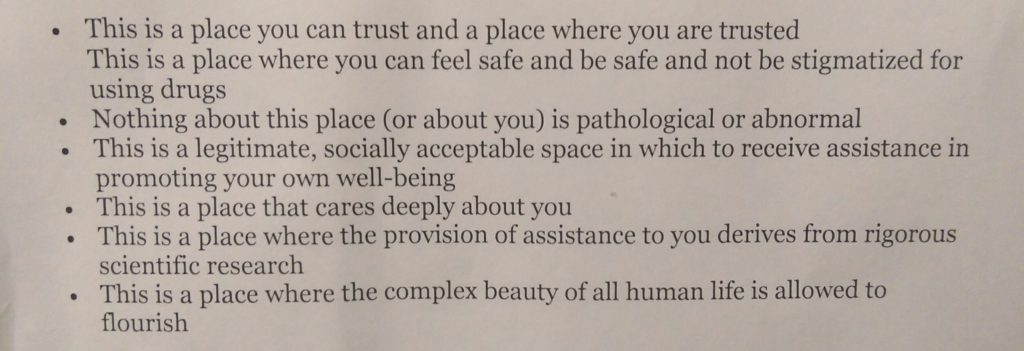
BC’s Public Health Emergency Update: By the Editors

Fentanyl continues to dominate the street drug market across the country, which led to BC declaring a public health emergency last April. It’s been almost four months and overdoses are rising, with fentanyl being found in more than just street heroin. Pills thought to be “party drugs” and crack cocaine have also been laced with fentanyl, causing overdoses and fatalities.
On June 15th, Vancouver Coastal Health (VCH) Chief Medical Officer Dr. Patricia Daly and Dr. Bonnie Henry, Deputy Provincial Health Officer updated Vancouver City Council on the public health emergency response. Daly stated that VCH is planning a “mental health and addictions hub” at the new St. Paul’s hospital. Daly told the CBC the hub would provide training and Naloxone kits and “connect people suffering from addictions to appropriate care”. Yet, there’s been no increase in the number of detox beds available. Editors’ calls to Access Central, the detox phone line, revealed long wait times. Someone requesting detox from heroin on June 29th would need to wait 11 days, until July 10th, to get help.
Daly told the council that VCH is in the process of applying for 5 new safe injection sites for Vancouver. If approved the sites may be operable by spring 2017. The process for gaining approval is incredibly excessive because of Harper’s Respect for Communities Act which remains law. Henry informed the council that the province is petitioning Health Canada to change this law while VCH wants it repealed.
Looking to the route cause of the crisis Daly stated “We need to seriously consider decriminalization of all illicit drugs…We know that keeping these substances illicit, in the same way that marijuana is illicit, actually contributes to the harms.”
Two days later at a drug policy conference in Toronto, Federal Health Minister Philpott stated her support for the Good Samaritan Drug Overdose Act. She has also temporarily approved Naloxone nasal spray (though the spray will cost upwards of $125 for two doses needed given the strength of fentanyl). But Philpott also wants to limit opioid prescriptions and remove low-dose opioids from the over-the-counter supply putting a greater demand on the illicit drug market. Philpott made no mention of drug decriminalization, legalization, or opioid assisted treatment, though there is more than a decade of supporting evidence from the NAOMI and SALOME drug trials in Vancouver. At the House of Commons Health Committee meeting in April, Philpott confirmed that Health Canada has no plans to reform or repeal Harper’s Respect For Communities Act. This leaves health authorities to manoeuvre their way through expensive, time-consuming hurdles within an application such as public support from the local business improvement group and the local police chief, as explained by former PIVOT health and drug policy lawyer Adrienne Smith.
And though Fraser Health Authority wants to establish a safe injection site in Surrey, Mayor Linda Hepner, despite saying that she’s “open to anything that saves lives,” continued to dodge evidence. Listening to Hepner’s interview, her ignorance on the issue of safe injections sites is unmistakeable.
In mid-July, Surrey saw 36 overdoses in 48 hours. On July 27th, drug advocates opened up an illegal safe injection site on 135a Street. Complete with privacy areas for injection and clean supplies, advocates welcomed those in need of a safe place to inject. Media reports state that the RCMP attended the site but did not make any arrests.
Also on July 27th, Premier Christy Clark held a press conference announcing a new Joint Task Force on Overdose Response. Yet, the force support prohibitive measures such as working with the Canadian Borders Service Agency, limiting the sale of pill press machines, and limiting the sale of materials needed to make fentanyl. Clark mentions working with the federal government to open more safe injection sites but avoids mentioning the Respect For Communities Act. She spoke of expanding Suboxone, Methadone, and recovery programs but no talk of decriminalization, legalization, or opioid-assisted treatment.
But we don’t need another task force. And, sure, we need Naloxone, but it doesn’t prevent overdoses. And we need clean needles but we also need clean drugs. The current federal legislation ensures that people will continue to overdose and die. Governments are spending their time asking questions that have already been answered.
